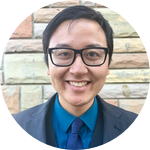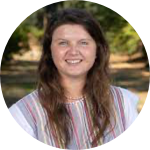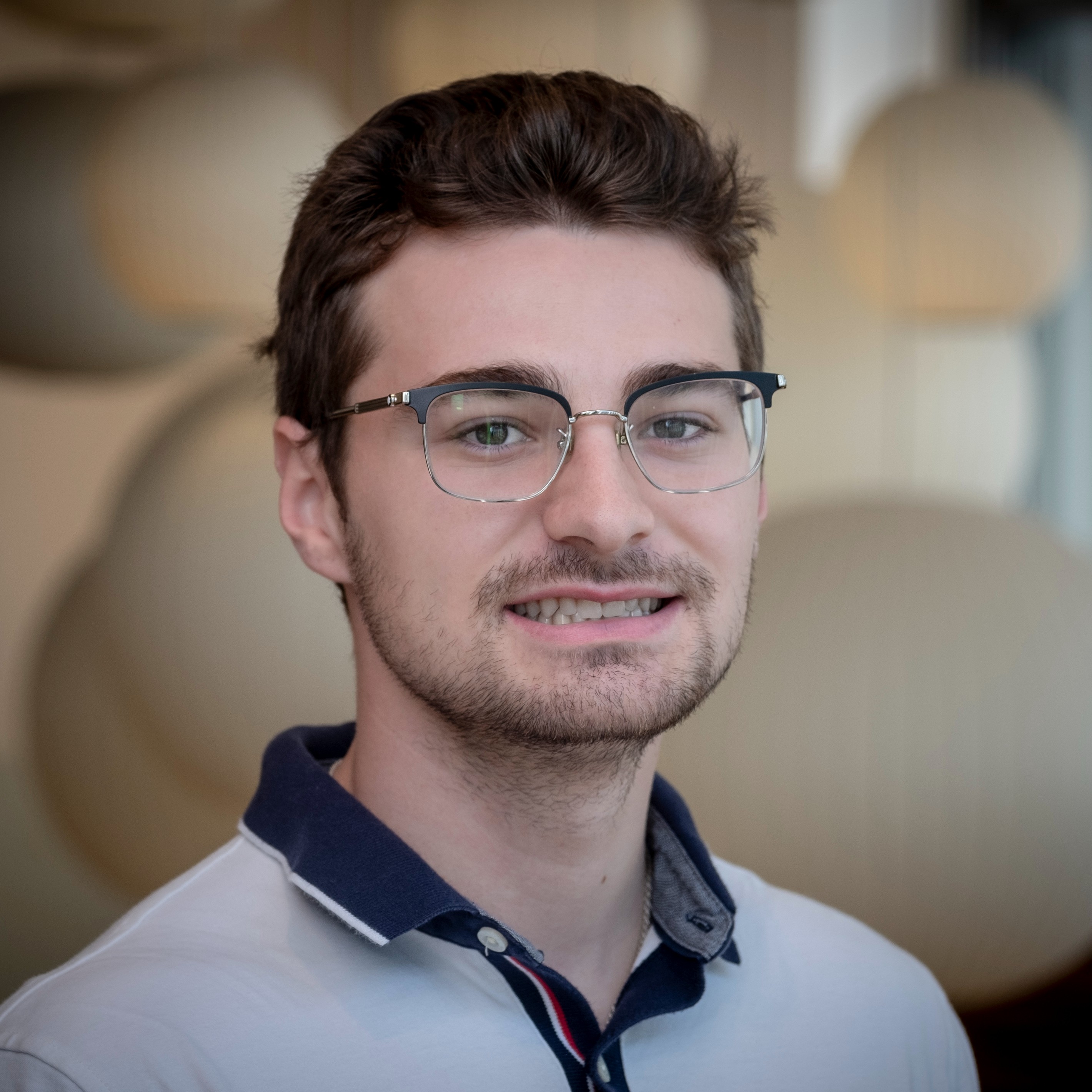About This Project
Food waste, which is mostly landfilled, represents a widely available and potential feedstock rich in biogenic carbon and nitrogen. An estimated 25.8 million tons of fermentable sugars and amino acids are available every year if this material could be economically reused. The following project explores the use of acid-resistant hydrolytic enzymes from filamentous molds engineered to convert food waste into a shelf-stable fermentation feedstock for producing alternative proteins.
Ask the Scientists
Join The DiscussionWhat is the context of this research?
According to the UN Food and Agriculture Organization (FAO), one-third of all food produced is wasted, leading to 3.3 billion tonnes of CO2 equivalent of greenhouse gas emissions (1). Uncontrolled degradation of organic food material in landfills not only leads to the production of methane emissions, but also impacts food security, resource conservation, and agricultural land use.
Several practices are currently used to divert food waste from municipal landfills, including composting and anaerobic digestion. However, both these and other methods suffer from long duration, labor-intensive processing, complex monitoring, and the presence of pathogens in products (2,3). Additionally, much of the energy and resources put into producing the original foods are lost through these methods.
What is the significance of this project?
Several Aspergillus species, including A. awamori, A. luchuensis, and A. oryzae, produce enzymes capable of degrading food waste into sugars and amino acids (4,5). The resulting hydrolysate has been successfully used to produce a number of chemical products using secondary fermentation (6). These species could be used to upcycle food waste into fermentation feedstock for food production via single-cell protein (SCP) fermentation (7).
However, challenges hinder the use of food waste as a feedstock, including contamination and transportation costs. An on-site, multi-stage fermentation system that acidifies food waste below the pH that protects the material from contamination, hydrolyzes the food waste into sugars and amino acids, and converts the feedstock into SCP could be designed.
What are the goals of the project?
Several questions guide this investigation into the production of edible SCP from food waste. What conditions allow a consortium of Aspergilli species to optimally produce enzymes that hydrolyze food waste? What conditions (pH, temperature, concentration) allow these enzymes to achieve optimal efficiencies? Can these enzymes function in low pH media below the threshold of spoilage and pathogenic microorganism proliferation? Can the resulting, highly acidified hydrolysate be used directly as a feedstock by SCP-producing, edible acidophiles and extremophiles? Will engineered proteins optimize fermentation? What is the composition of the resulting hydrolysate and does it possess the correct nutrient profile to allow optimal growth of SCP microorganisms?
Budget
The current research budget is composed of three different major budget categories. The major budget items included are stipends for the members of the research team, which will be divided based on the time commitments available for each member of the team. Another budgetary item is the cost of research materials such as analytical equipment, chemicals, and chemical and microbiological assays to evaluate the composition of the hydrolysate feedstock and its food safety profile. Finally, the last budgetary items include the cost of pure strains of microorganisms used in this study, although alternative sources of these strains will be explored to reduce costs, including the Agricultural Research Service (ARS) Culture Collection and other research institutes willing to offer strains for free or at cost. Additional details have been outlined in the Solution Statement.
 Project Timeline
Project Timeline
The timeline for the research project spans across six months and is focused on core research activities to de-risk the current multi-step fermentation design for follow-on funding. The major activities include (i) purchase and preparation of research materials, (ii) preparation of the experimental hydrolysate, (iii) growth and isolation of single-cell protein, and (iv) analysis of the experimental products. Additional details are outlined in the solution statement.
Dec 15, 2023
Purchase materials, equipment, and assays. Prepare stock microorganisms and finalize the experimental design.
Jan 15, 2024
Collect and freeze standardized food waste material from local commercial entities. Evaluate pre-fermented composition of food material.
Feb 15, 2024
Conduct culturing experiments on solid substrates and prepare raw and acidified hydrolysates; evaluate enzyme activity and optimal conditions.
Mar 15, 2024
Analyze chemical composition and food safety profile of raw and acidified hydrolysates.
Apr 15, 2024
Genetic manipulation of strains to optimally produce engineered acid-resistant fermentation enzymes.
Meet the Team
Affiliates
Affiliates
Affiliates
Team Bio
The research team has recently applied for the $350,000 Good Food Institute Field Catalyst Grant under an expanded form of the project, which has garnered material support from several stakeholders, including potential follow-on funding of up to $125,000 from ValleyDAO contingent on the success of the aforementioned grant, laboratory space and equipment access from Pacific Lutheran University, and discounted laboratory space and technical support from RAIN Incubator.
Bryan Quoc Le
Dr. Bryan Quoc Le received his Ph.D. in Food Science from the University of Wisconsin, Madison, where he studied the biological effects of savory flavors from plant-based sources on mammalian tissues, and his M.S. and B.S. (hon) in Chemistry from the University of California, Irvine. He is the author of 150 Food Science Questions Answered, a popular science book on food science. He currently offers technical consulting services to food startups, companies, and organizations through his business, Bryan Quoc Le LLC. His clients include TikTok Shop, Blue Diamond Growers, Lactalis, TurtleTree, Black Sheep Foods, Sosa Ingredients, Trinchero Family Estates, and many others.
Dr. Le also serves as a Faculty Research Fellow in the Department of Biology at Pacific Lutheran University, a mentor for CoMotion Labs at the University of Washington, a Domain Expert at Carbon13, and a Research Scholar at the Ronin Institute for Independent Scholarship. For the past two years, he has been the Lead Consultant and Project Manager for the research analysis and whitepaper report titled “Cultivating alternative proteins from commodity crop sidestreams” in partnership with The Good Food Institute, the findings which are slated to be released on October 24, 2023. He is a co-inventor of two patents in the field of agriculture as well.
Website: https://www.bryanquocle.com
LinkedIn: https://www.linkedin.com/in/br...
Google Scholar: https://scholar.google.com/cit...
Google Patents: https://patents.google.com/?in...
Taylor Dodson
Dr. Taylor Dodson earned her Ph.D. in Medicinal Chemistry at the University of Toledo in 2022, in Toledo, Ohio, where she studied the regulatory roles of enzyme-mediated nucleic acid chemical modifications in biological systems, utilizing bioanalytical (HPLC and mass spectrometry) and molecular biological (genetic engineering) techniques. Her primary focus included the study of microbial biofilm development and regulation, and the effects of hyperglycemic conditions on eukaryotic cell culture and diabetic murine tissues.
She currently holds a multi-year position of Visiting Assistant Professor in the Biology Department at Pacific Lutheran University instructing general biology and microbiology. As an alumni holding a B.S. in Chemistry from the primary undergraduate institute (PUI), Gardner-Webb University, she is dedicated to mentoring and conducting wet-lab research with undergraduate students interested in research professions.
Website: https://www.plu.edu/biology/st...
ResearchGate: https://www.researchgate.net/p...
Bianca Datta
Dr. Bianca Datta completed her Ph.D. at the Massachusetts Institute of Technology in 2021, where she studied material design and fabrication of bioinspired structural color, and is currently working as a food scientist on novel food materials. She graduated with a B.S.E. and M.S.E. in materials science & engineering at the University of Pennsylvania in 2014, and an S.M. from MIT in 2016. Her research interests include nature-inspired materials design and interfaces, advanced manufacturing and nanotechnology, sustainable materials, and cellular agriculture and plant-based protein.
She formerly worked at Black Sheep Foods on plant-based meat products and was an AAAS Mass Media Fellow at PBS NOVA. She has a strong interest in sustainability, conservation, and circular material systems. She is a former Dissertation Awardee through New Harvest, a current Research Scholar at the Ronin Institute for Independent Scholarship, and an inaugural Research Fellow with Delicious Future, working on sustainable food and consumer behavior. She is also interested in scientific communication and representation for education and public engagement, and volunteers with Farming Hope, 826 Valencia, and the Center for Asian American Media.
Website: https://www.biancadatta.com/
LinkedIn: https://www.linkedin.com/in/bi...
Google Scholar: https://scholar.google.com/cit...
Ronin Institute: https://ronininstitute.org/res...
Vincenzo D'Onofrio
Vincenzo D'Onofrio is an undergraduate student and athlete at Pacific Lutheran University. He will be completing his undergraduate degree in May 2024, and will obtain a Bachelors of Science in Biology and Chemistry. His focus is biochemistry, looking specifically at protein interactions. He has previously performed undergraduate research on proteins involved in drosophila development with faculty at Pacific Lutheran University. He has also completed a summer research internship at Seattle Children's Research Institute, where he investigated protein-protein interactions involved in CAR-T cell therapy. He is currently performing research with Dr. Bryan Quoc Le at Pacific Lutheran University, involving single-cell protein development.
Project Backers
- 0Backers
- 0%Funded
- $0Total Donations
- $0Average Donation



